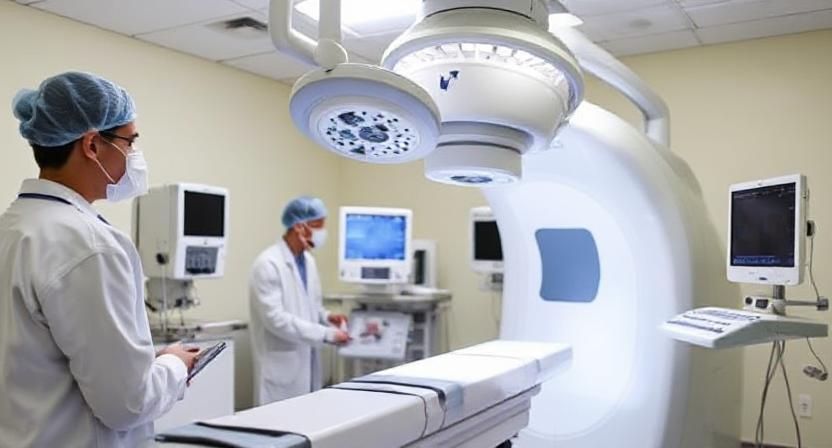Interventional radiology has emerged as one of the most exciting and rapidly growing fields in medical technology. If you’re considering a career as an interventional radiology technologist, one of the most important questions you might have is about the interventional radiology tech salary. This article explores salary expectations, factors influencing pay, job outlook, and tips to maximize your earning potential in this rewarding healthcare profession.
What is an Interventional Radiology Technologist?
Before diving into salary details, it’s important to understand what an interventional radiology technologist (IR tech) does. These specialized technologists assist radiologists in performing minimally invasive diagnostic and therapeutic procedures guided by imaging techniques such as X-rays, CT scans, and ultrasounds. Their expertise supports treatments ranging from cancer therapies to vascular interventions, making their role critical in modern medicine.
Average Interventional Radiology Tech Salary in 2025
National Salary Overview
The average salary for an interventional radiology technologist in the United States varies based on experience, location, education, and workplace setting. As of 2025, the average annual salary for IR techs typically ranges between $60,000 and $85,000. According to recent data from the Bureau of Labor Statistics and industry salary surveys:
-
Entry-level IR techs can expect to earn around $55,000 to $65,000 per year.
-
Mid-career professionals generally earn between $70,000 and $80,000.
-
Experienced IR techs or those with specialized certifications may earn upwards of $90,000 or more annually.
Hourly Wage Breakdown
For those paid hourly, the rates usually range from $28 to $42 per hour, depending on expertise and geographic factors.
Factors Affecting Interventional Radiology Tech Salary
Geographic Location
Location plays a significant role in salary differences for interventional radiology technologists. For example:
-
Urban areas with high demand for specialized healthcare professionals, such as New York City, San Francisco, and Boston, tend to offer higher salaries.
-
Rural and less populated areas often have lower average salaries but may provide additional benefits like signing bonuses or relocation assistance to attract talent.
Education and Certification
While a standard requirement is usually an associate degree in radiologic technology, additional certifications in interventional radiology (such as the ARRT’s Interventional Radiography certification) can lead to higher pay. Continuous education and training are also highly valued in this field.
Experience Level
Experience directly influences salary. Employers value IR techs with years of hands-on experience and familiarity with advanced imaging equipment and complex procedures.
Employer Type
Interventional radiology techs working in large hospitals or specialized cancer treatment centers typically earn more than those working in smaller clinics or outpatient facilities. Government and military hospitals sometimes offer competitive salaries coupled with benefits.
Benefits and Perks Beyond Salary
While the salary is a critical consideration, many IR tech jobs also come with attractive benefits such as:
-
Health, dental, and vision insurance
-
Retirement savings plans like 401(k) with employer matching
-
Paid time off and sick leave
-
Continuing education reimbursement
-
Flexible work schedules
These benefits can substantially increase the overall compensation package and improve job satisfaction.
How to Increase Your Interventional Radiology Tech Salary
Obtain Advanced Certifications
One of the fastest ways to boost your salary as an IR tech is by earning advanced certifications. Some popular credentials include:
-
ARRT Certified Radiologic Technologist (RT)
-
ARRT Interventional Radiography Specialty
-
Registered Vascular Technologist (RVT)
Employers often offer pay raises or bonuses to techs with these credentials.
Gain Specialized Skills
Specializing in certain procedures or technologies can make you more valuable. For instance, proficiency in cardiac catheterization labs or neurointerventional radiology can lead to higher pay.
Pursue Higher Education
Earning a bachelor’s degree in radiologic sciences or healthcare management may open doors to leadership roles or specialized positions with higher salaries.
Relocate to High-Paying Areas
If you are open to relocation, moving to a metropolitan area or a state with higher demand for IR techs can significantly improve your salary.
Job Outlook for Interventional Radiology Technologists
The demand for interventional radiology technologists is expected to grow steadily due to advancements in medical technology and an aging population requiring minimally invasive procedures. According to the U.S. Bureau of Labor Statistics, employment for radiologic technologists is projected to grow by about 9% from 2022 to 2032, which is faster than the average for all occupations.
This positive job outlook often translates to competitive salaries and strong job security.
Typical Work Environment and Schedule
Most interventional radiology technologists work in hospital settings, outpatient care centers, or specialized clinics. Their work involves close collaboration with radiologists, nurses, and other healthcare professionals. The job may require standing for long periods and sometimes working irregular hours, including nights or weekends, depending on the healthcare facility.
Summary: Is a Career as an Interventional Radiology Technologist Worth It?
The interventional radiology tech salary is competitive, especially when combined with excellent job growth prospects and rewarding work. If you enjoy working with advanced medical technology, patient interaction, and being part of cutting-edge healthcare, this career path offers both financial and personal fulfillment.
By gaining experience, pursuing certifications, and staying updated with industry trends, you can maximize your earning potential in this specialized field.
Frequently Asked Questions About Interventional Radiology Tech Salary
What is the starting salary for an interventional radiology tech?
Starting salaries typically range from $55,000 to $65,000 per year, depending on location and education.
Do interventional radiology techs earn more than general radiologic technologists?
Yes, due to their specialized skills and the complexity of procedures, IR techs generally earn higher salaries than general radiologic technologists.
Can experience significantly impact salary?
Absolutely. Experienced IR techs, especially those with certifications and advanced skills, can earn upwards of $90,000 annually.
Are there opportunities for overtime or bonuses?
Yes. Many healthcare facilities offer overtime pay and bonuses, especially for working night shifts or in-demand procedures.
If you’re ready to enter a growing, well-compensated healthcare field, becoming an interventional radiology technologist could be the perfect career move. Keep in mind the factors discussed here to plan your career path strategically and maximize your salary potential.



